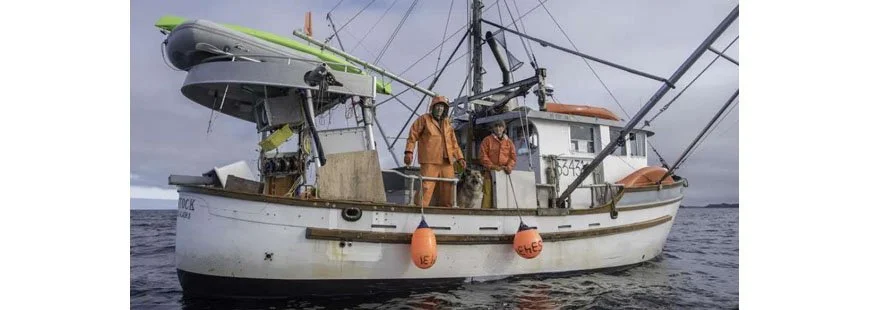Posted by Linda Behnken Jul 6, 2023 Commercial Fishing, Featured, Salmon, Sustainable Seafood, Working Waterfronts Leave a Comment on the Marine Fish Conservation Network page
After months of fighting to save Southeast Alaska’s Chinook salmon troll fishery from a misguided lawsuit filed by the Wild Fish Conservancy (WFC), our fleet is going fishing!
On June 21st the Ninth Circuit Court of Appeals reversed the District Court’s May decision to close the fishery while the National Marine Fisheries Service addresses technical issues with its Endangered Species Act documents. We are deeply relieved that the appeals court followed the science.
The WFC lawsuit alleges that the Alaska troll fishery is a threat to Southern Resident Killer Whales (SRKW), a pod of salmon eating orca that live most of the year in Puget Sound. The substantial body of science on the topic establishes that the real threat to the SRKW is habitat damage from urbanization, industrial pollution, and noise disturbance in their home range–not fisheries. Even if fisheries were a threat, it takes twisted logic to identify the small boat, low volume, hook and line troll fishery operating over 800 miles away from the orcas’ home range as the problem. Closing Southeast Alaska’s troll fishery would not benefit SRKW or the salmon they depend on, but it would destroy the rural and indigenous families and villages that depend on the troll fishery. As the appeals court opined, the documented socioeconomic costs are not justified by the speculative environmental impacts claimed by the WFC.
The Ninth Circuit decision is also a testament to the groundswell of support that Alaska’s trollers received from tribes, conservation groups, businesses, local communities, the Alaska’s State Legislature, and Alaska’s Congressional delegation. From a scientific, cultural, and social justice perspective, this lawsuit is a misfire–and a major distraction from the crucially important work to recover Puget Sound orca.
Salmon, orcas, and our planet would be better served if we worked together to address the complex issues that threaten the future sustainability of our fisheries and coastal ecosystems: dams, urban pollution, mining, and climate change. Transferring the conservation burden and cost onto fishing families isn’t the answer–as experts assert. Lynne Barre, who has led the SRKW recovery program at the National Marine Fisheries Service since 2002, points out in her October 2022 written declaration that the WFC oversimplifies and overestimates the impacts of shutting down Southeast’s troll fishery, failing to account for the mobility of both Chinook and orca populations and their fluctuating migratory pathways.
The hard truth is that there are no shortcuts when it comes to restoring wild salmon. We have seen everywhere else in the world that without healthy habitat and free-flowing rivers, we cannot have healthy wild salmon. Alaska trollers understand this. We work to protect salmon habitat to protect our way of life, our communities, and ocean health.
If nothing else, I hope that our legal battle to save our small boat fisheries, communities, and way of life in Southeast Alaska can be a reminder to both fishermen and non-fishermen around the country that we need to work together to ensure our fisheries are sustainable and our oceans are healthy for generations to come.

